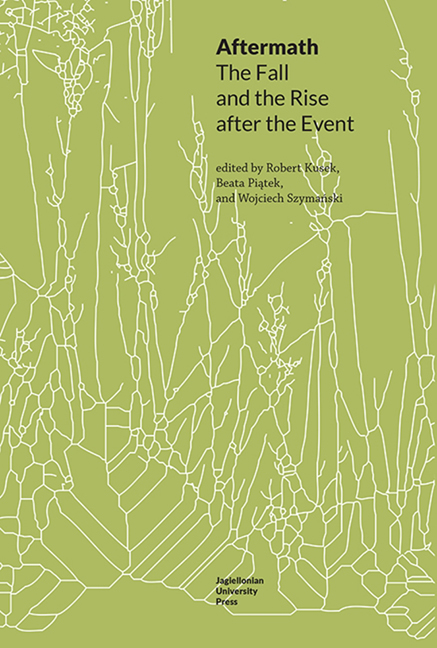“It Is, After All, a Communication with Ghosts”: Correspondences by Anne Michaels and Bernice Eisenstein as a Historical and Personal Elegy in the Aftermath of the Holocaust
Published online by Cambridge University Press: 06 November 2021
Summary
Introduction
The aim of this text is to discuss a unique volume published in 2013 entitled Correspondences written by Anne Michaels and illustrated by Bernice Eisenstein. Classified as poetry, the volume is a blend of various genres such as elegy, grief memoir, and graphic biography, and, as such, offers an exceptional experience of commemorating the death of Michaels's father, as well as grappling with the aftermath of the Holocaust. On the one hand, and on one side of pages, the text is a long, elegiac poem in which Michaels tries to cope with the haunting images of her deceased father, Isaiah; and on the other, it also becomes, through drawings provided by Eisenstein, a communal Kaddish (cf. Hirsch 2002: 247) for those who either lost their lives in the Holocaust or were profoundly influenced by its experience. According to Hirsch, the Eastern European tradition of writing “memorial books” for the future generations living in diaspora is modelled on “ancient and medieval Jewish practices” (246) and such books record “the genocide that annihilated those communities” (ibid.). Moreover, she continues, “they contain photographs as well as texts, individual and group portraits evoking life as it was before” (ibid., emphasis in the original). Correspondences, then, is a volume which subscribes to this tradition simultaneously changing and developing it. The text, written by a second generation poet and writer, not only commemorates the death of the first generation but also offers the forthcoming ones a chance to “find a lost origin, where they can learn about the time and place they will never see” (247). The book, through its unusual form, incorporating portraits, quotations from various sources, and an elegiac, biographical poem – and through an interconnectedness among these elements – challenges the traditional form of commemoration of the traumatic event and, due to its meditation on the haunting presence of the dead and the memory of a traumatic event, proves to be a novel way of approaching the aftermath or “after-effect of a seminal event” (Kusek, Piątek, and Szymański 2019: 10) both to the society and individuals. The interplay of drawings and text demonstrates the mutual influences between these two modes of artistic expression, history and literature, mourning and commemoration, and, according to one of the critics, this volume is “another example of the way grief can be a catalyst for art” (Connors 2013).
- Type
- Chapter
- Information
- AftermathThe Fall and the Rise after the Event, pp. 39 - 50Publisher: Jagiellonian University PressPrint publication year: 2022



